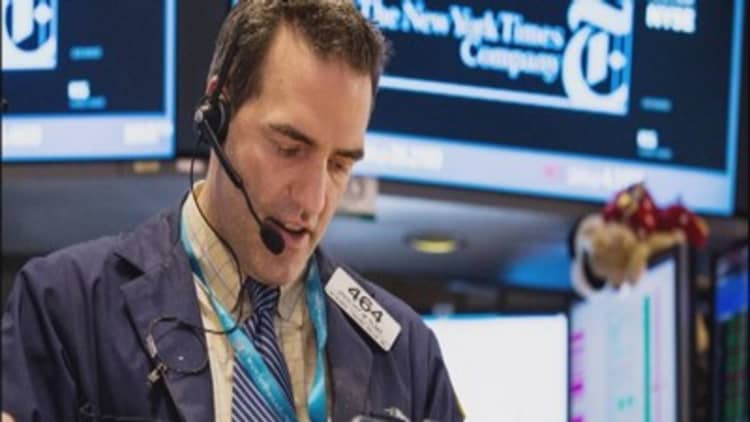
Investors are looking to the European Central Bank to live up to a rather lofty advance billing as it attempts to beat back deflation and resurrect the region's economy.
"Markets have been waiting 2 1/2 years for ECB President Mario Draghi to put pen to paper on his promise that he'd do whatever it takes, so the larger risk is for Draghi to do something less than spectacular," Art Hogan, chief market strategist at Wunderlich Securities, said.
Reports published Wednesday signaled that the ECB would unveil a bond-purchase program of at least 500 billion euros and possibly closer to 600 billion euros, pushing U.S. equities higher and elevating the risk of investors getting a less-than positive surprise.
"I'd be surprised if it's a number that is considerably less. If it's close, and Draghi effectively delegates the purchase program to the various sovereign banks, I don't think it will be a surprise, or a big market mover," Hugh Johnson, chairman of Hugh Johnson Advisors, said.
"This is their moment in the sun, so to speak," Johnson added.
While the reports fueled optimism in the equities markets, the plan could still derail as it faces debate in the ECB's Governing Council, which could opt for a different course before a final decision is made Thursday.
"They will announce something, but if it lacks specificity it won't be enough to convince people this is for real, so the mechanics as well as the politics are difficult," Bruce McCain, chief investment strategist at Key Private Bank, said.
By promoting quantitative easing modeled after the program now being wound down by the U.S. Federal Reserve, Draghi and the ECB would be going against the desires of the euro zone's largest economy.
"Germany is saying we don't want anything to do with this, so the tightrope that Mario Draghi is walking here is to do something large and still placate Germany," Hogan said.
Investors "intuitively see what happened in the United States and want Europe to correlate," Paul Karos, senior portfolio manager at Whitebox Advisors, said of the task faced by the euro zone's 19 central banks.
"It isn't as clean as the U.S. because of their structural challenges. QE had some positive effect, but the big thing that worked here is corporate America reacting quickly to a different environment. The ECB can't stimulate that," Karos argued.
"On the positive side, their currency has weakened; that should help their exports. It should be more difficult for U.S. manufacturers to compete against European and Japanese manufacturers," Karos added.
"What they need to do is signal they are being stimulative and move the European currency even lower," Hogan said.
And, while the ECB may or may not placate investors with its decision, the longer-term situation is another matter.
As Draghi's predecessor, Jean-Claude Trichet, told CNBC on Wednesday: "To think the ECB has a magic wand and will change all the situation in Europe by its magic wand, in my opinion, is not the appropriate reasoning."


